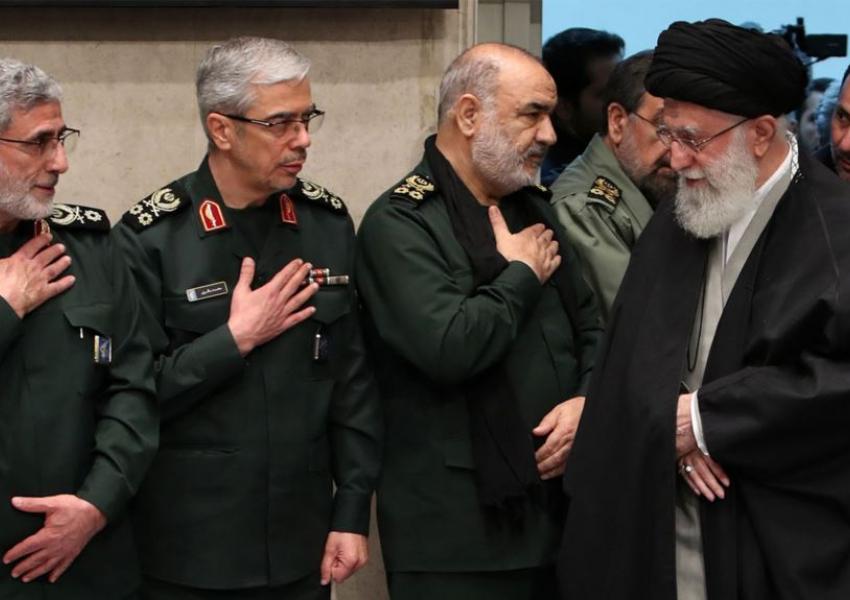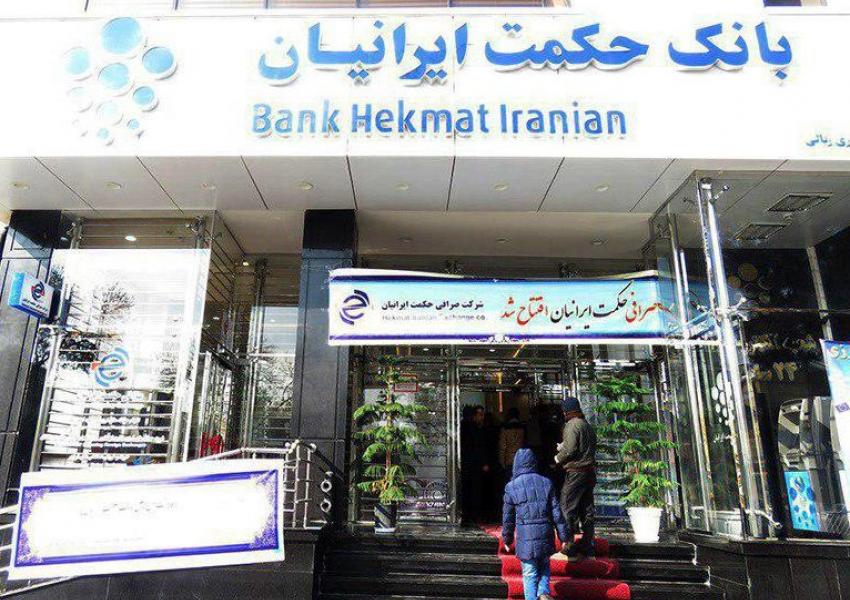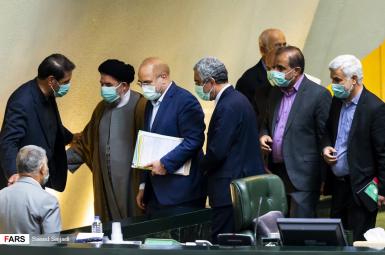
Exclusive: IRGC Uses Iran's Central Bank Currency System To Fund Regional Proxies
Iran's Revolutionary Guards (IRGC) are taking advantage of Iran's chaotic foreign exchange rating system to send hard currency to the Qods Force's proxy fighters in the region despite US sanctions on Iran's international banking, an investigative report has revealed.
Information acquired by Iran International indicate that the IRGC is using a system set up by the Central Bank of Iran (CBI) by which businesses buy and sell foreign currencies they need or earn at a special lower rate. Several forex outlets are authorized to make these trades, where IRGC conducts its business.
The system called Nima allows Iranian exporters to sell their hard currency at a rate between the official rate of 42,000 rials per dollar and the black-market rate of [currently] over 260,000 rials.
A senior manager at the Iranian banking system who provided the information on the condition of anonymity, says the IRGC has purchased "tens of millions of dollars and euros" from the exporters through this system.
He said the IRGC uses the names and documents that apparently belong to officially registered money changers in the illicit operation, disguising the sanctioned military force as money changers and trading companies. This could violate international rules about money laundering, that Iran has refused to adopt.
He added that the Central Bank is aware that the foreign currency sold to the IRGC will not be given to importers who are meant to use them to import essential commodities and that the money will be diverted to the IRGC's Qods Force.
According to Central Bank Governor Abdolnasser Hemmati, $15 billion of export-earned foreign currency has gone into the Nima system since late March for importers to buy at the advantageous rate.

Hekmat Bank affiliated with the Iranian Army set up money changing branches in major cities. This is the branch in Mashhad.
The investigation shows that the amount has been mainly used by government entities particularly to fund the operations of the IRGC Qods Force outside Iran.
Banking experts say that using the system by the IRGC has led to a major reduction in the amount of foreign currency needed for essential imports including the import of medicine and medical supplies.
Incidentally, since March Iran’s rial lost most of its value, from 160,000 to the dollar to as low as 300,000.
Iran International's sources say General Seyyed Hojjatollah Qoraishi and his colleague Rezagholi Esmaili at the Ministry of Defense's Logistics and Industrial Research Office coordinate the fund diversion operations between the IRGC and money changers.
Esmaili was sanctioned by the US in 2016 for his role in Iran's ballistic missile development program based on UN Resolution 1747. However, Esmaili and 22 other Iranian officials' names were taken out of the United Nations sanctions lists in October based on UN Resolution 2231, that set October 8, 2020 as the end date of UN weapons sanctions on Iran. He is currently the Vice CEO of Sanam Trading and Industrial Company.
The two officials receive the foreign currency needed by the Qods Force from Hekmat Iranian Money Changing Institution affiliated with the Hekmat Iranian Bank, in turn affiliated with the Iranian army. The Money Changing Inst operates under the management of Nasser Mohseni. It began setting up money changing bureaus in major Iranian cities in November 2016, claiming it has banking relations with international banks.
Other money changers that work with the IRGC Qods Force include Seyyed Mohammad Mosanaei and Co, Sadaf Exchange, and Omid Sepah Money Changer.
Iran International source revealed that at least three other individuals linked to the IRGC Qods Force, Behnam Sharyari Marallou, Houshang Allahdadi, and Meghdad Amini are also involved in the fund diversion operation.
Amini was sanctioned by the US government in September 2018 for offering financial services to the IRGC Qods Force via Aras Kish Co and a network linked to Bank Ansar affiliated with the IRGC. At the time the US government named Amini and five others as part of a network that served the IRGC.









